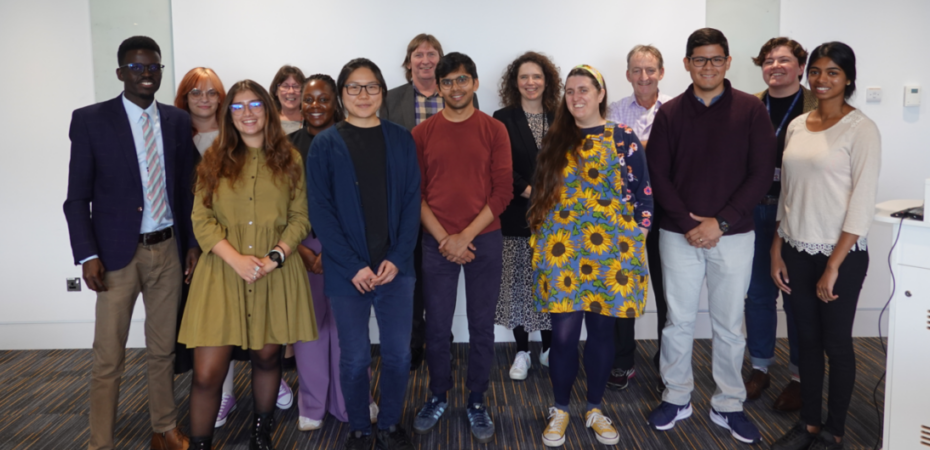
In this post, PhD students, Elisa Cardemone, David Vaca Benavides, Godrey Wanok, and Emilie McSwiggan, who are part of the Advanced Care Research Centre Academy (ACRC), discuss how they developed a successful leadership project from receiving a Student Partnership Agreement grant. This post belongs to the Hot Topic series: Student Partnership Agreement 2023↗️.
Who are we? A little look into the ACRC Academy
The Advanced Care Research Centre Academy was launched in 2021, with a first cohort of ten PhD students and a second cohort who started in 2022 – us! The Academy’s vision is to train a new generation of leaders and innovators across the spectrum of the care sector. So, cohorts are interdisciplinary, with backgrounds ranging from engineering to health sciences and arts.
The idea
Back in October, when we met as a cohort, we shared some questions about the meaning behind the ‘agile leadership’ agenda of the Academy. We also recognised that many of us were new in Edinburgh and did not have an established network within the university. So, we thought that a project on leadership would be the perfect opportunity to work together, come up with our own questions, explore people and the university outside of the Academy environment to then bring all this back to class! We just had to apply to the SPA funding! With the support of the Academy’s senior leadership, we filled out the application and submitted. In November we received the good news that we had been awarded the funding!
In Practice…
After spending an afternoon brainstorming, we came up with a proposal and three phases to explore different topics:
- The meaning of leadership
- How to cultivate it reflexively
- How to help others find their own ways of being a leader.
In the first phase, we invited four speakers: Devi Sridhar (Personal Chair of Global Public Health), Colm Harmon (Vice Principal), Catherine Bovill (Professor of Student Engagement in Higher Education), and Linda Bauld (Chair of Public Health). With each of them, we explored different leadership journeys and reflected on how personal experiences shape us to be the leaders that we are today. We have learnt about collaboration, conflict management, sharing responsibilities, and how authenticity shapes directionality and decision-making.
“The leadership training granted me an opportunity to learn new concepts like the imposter syndrome which was extensively elaborated on by the speakers. I was able to learn the several types of imposters, how to talk about this feeling, and how to manage it.” – Godrey
In the second phase, we prepared and held a series of workshops with the undergraduate community. The aim of the workshops was to discover what students need to see themselves as future leaders in whatever sector they plan to work in, but also to explore the key qualities that they see as important parts of leadership and to co-create those resources. We highlighted the value of different forms of leadership while working through exercises such as obstacle mapping and scenarios.
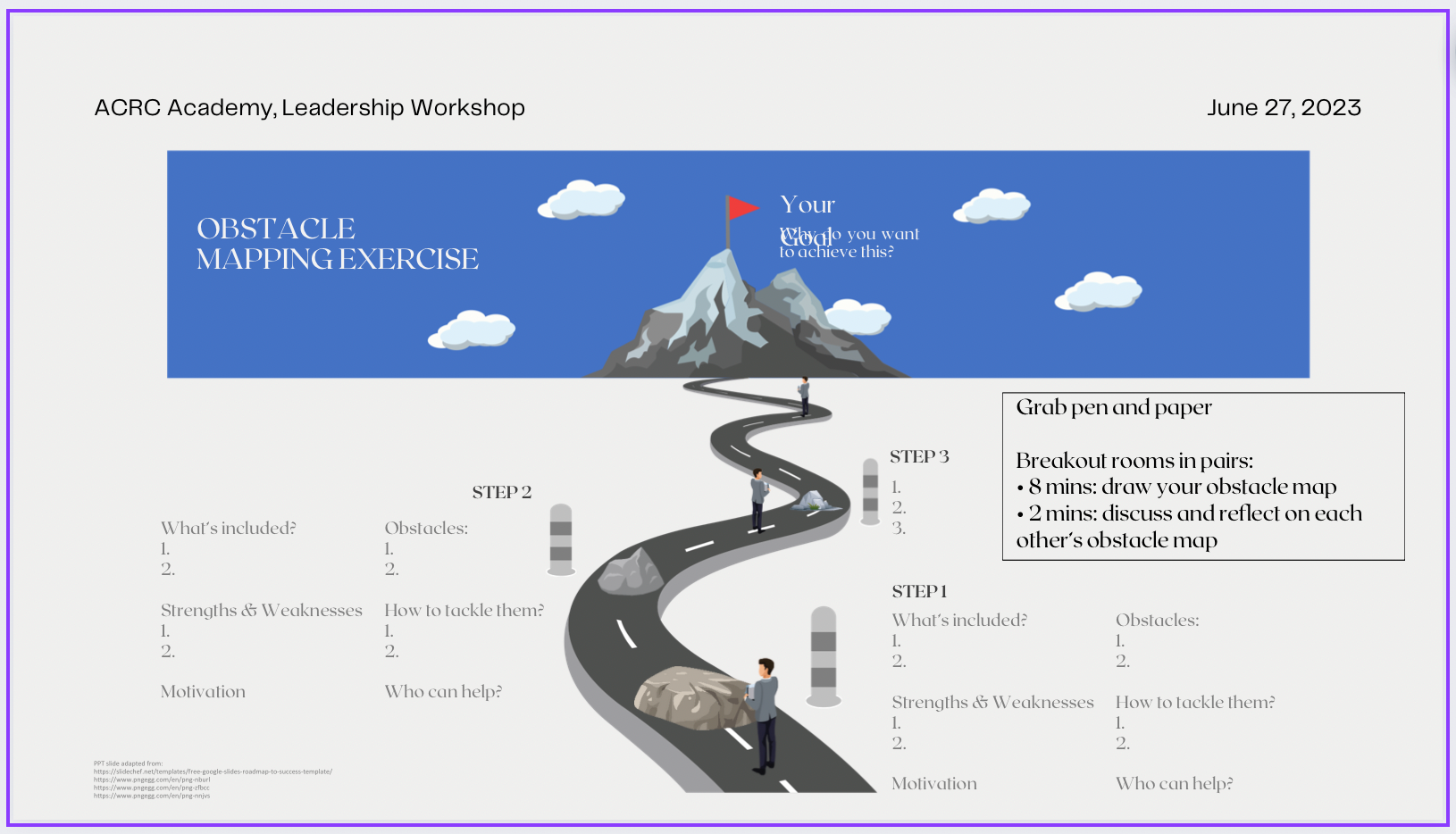
In the last phase, we came together to reflect on this project and what we learnt. We also run the workshop at the Higher Education conference, consolidating our experience and gathering feedback from the wider community.
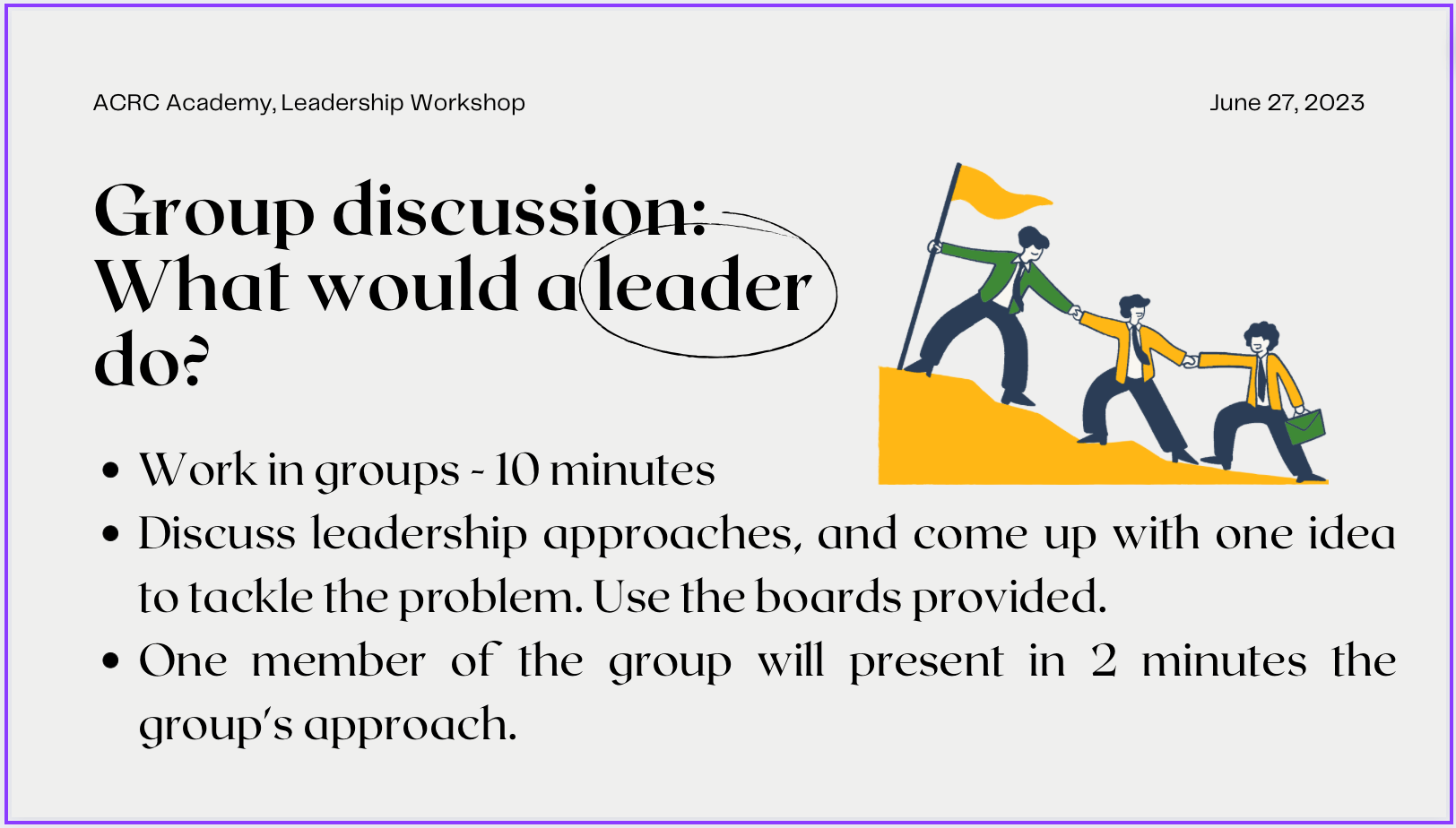
“This project has been an interesting experience as it brought us closer (ACRC Academy cohort 2) to share ideas and prepare a workshop for fellow students. This posed a challenge to all of us because we were looking to put together themes that we knew very little in the beginning. At the end we were able to understand and identify with some issues that leaders experience, as well to transmit this knowledge during the workshop with undergrad students through an interactive experience.” – David
The importance of our values
Something that we realised along the way is the importance of our values. Whether we believe in being confident, kind, self-disciplined, or optimist, we must take care of the values that guide us when working. We must pick what matters to us and cultivate it through our daily interactions, making sure that our thoughts and words align with those beliefs. To practice thinking and talking about our own values, we used an exercise from Brene Brown’s Dare to Lead Hub: https://daretolead.brenebrown.com/assessment/↗️.
We concluded that to us being a leader means being able to communicate and inspire, creating space for others to identify their own values and cultivate them. Thus, the starting point of our conversation should be, what are our core values as individuals, how are these going to shape our role as members of the team, and how can we make sure they align to the work that is being done?
Uncertainty as space for creativity
Another concept that we came across in the project is negative capability: the ability to sit in a state of unknown, using it to be creative and find solutions, to reflect on our values, and ultimately to position ourselves for when events will unfold. Taking care of ourselves when things do not go as expected, knowing that we can trust our values and abilities to guide us through difficult times, are critical to our success as leaders. Looking at uncertain situations such as moving from university to the workplace or from an undergraduate degree to a research degree as moments for reflecting and envisioning our future, can make a difference between navigating well the unknown or being negatively affected by uncertainty.
If you want to read more about negative capability, we recommend starting with this blog post on Embracing negative capability: the value of not knowing.
Final reflections and next steps
Looking back at the project after one year since submitting the application to the SPA funding, we can say that it has been a challenging but rewarding journey. Having the opportunity to reflect together and with the student community on how our personal journeys have been shaping our work was immensely valuable, and we are confident that we will be moving to the next phases of our PhDs equipped with more reflexivity and new skills. In Emilie’s and David’s words:
“I’ve really enjoyed working together with fellow students on this project. It has been a really interesting, creative and thought-provoking collaboration. It has given us space to reflect together on the kind of leadership we’d like to show but has also meant that we’ve had to practice those skills day-to-day to help deliver the project. It’s been lovely to be part of a team with such wonderful, energetic and supportive people!”.
“I would like to thank the support from SPA and to motivate other fellow students to be a take part in similar initiatives as they allow personal growth, enrich experience and have fun at the same time”.
Lastly, we are thinking of ways of sharing the workshop series with as many people as possible – for example, turning it into an online workshop. But this is still in the making… So, follow us at @acrcedincare↗️ | ACRC↗️ | The ACRC Academy↗️ to find out more about our next team project!
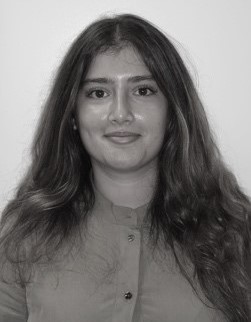 Elisa Cardamone
Elisa Cardamone
Elisa is a PhD student at the Advanced Care Research Centre. As a medical anthropologist working across design and engineering with older adults, she is interested in technology’s potential to reshape communities by creating new meanings, practices, and choices while ageing at home.
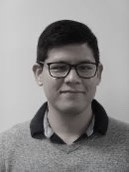 David Vaca Benavides
David Vaca Benavides
David is a PhD student at the Advanced Care Research Centre. His research interests include medical data processing on embedded systems and mixed-signal electronic design for power converters and medical applications.
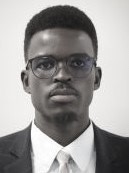 Godrey Wanok
Godrey Wanok
Wanok is a PhD student at the Advanced Care Research Centre, where he uses his knowledge and experience in optometry and low vision to explore the feasibility of using reading performance to monitor trends in visual and other physiological functionalities related to ageing.
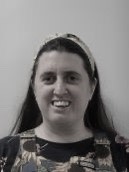 Emilie McSwiggan
Emilie McSwiggan
Emilie is a PhD student at the Advanced Care Research Centre, where she researches social prescribing for people in later life. She has a particular interest in health and social care, social welfare, and disability.

